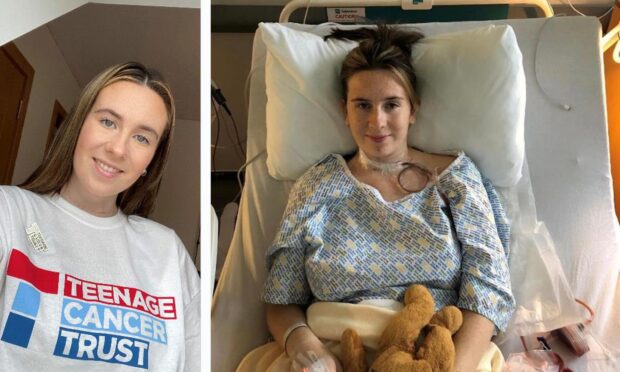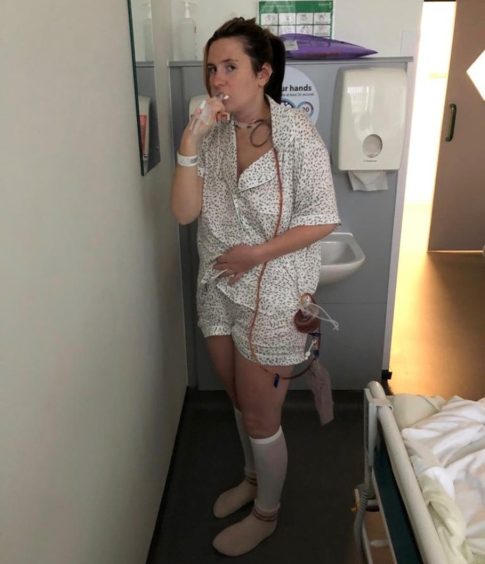An Aberdeen woman says that people would constantly tell her they knew someone who died from cancer whenever she revealed her diagnosis.
Jordan Ramsay, 23, is backing Teenage Cancer Trust’s new ‘what not to say’ campaign that urges the public to think about what to say to someone with the deadly disease.
She was just 21 when she was diagnosed with thyroid cancer and was treated at Aberdeen Royal Infirmary.
Jordan told how she has heard comments such as “Can I try on your wig?” and “My dog died of cancer” as well as far-fetched suggestions about the cause of her cancer – such as eating chocolate spread.
She said: “When you have cancer the worst things to hear are being told about someone’s family, friend or someone they knew and how they died of cancer, or even just about their cancer.
“It’s really upsetting so please don’t do that.”
She also shared how when first diagnosed, people were too scared to speak to her as they didn’t know what to say, and how difficult that could be.
Jordan added: “Things I found helpful were messages from friends saying simple things like thinking of you or sending love.
“It was also great when people spoke to me about non-cancer related things, people chatting to me about random things helped get my mind off cancer.
“When people did ask questions about the cancer it was best when they would also say ‘You don’t have to answer that if you don’t want to’. That made me feel more in control.”
What not to say to someone with cancer
After speaking to a group of young people with cancer, Teenage Cancer Trust laid out some themes to avoid:
Please don’t tell us about your relatives or pets that died of cancer – or ask when we’re going to die
Like Jordan, many said comments like this were deeply upsetting and unhelpful.
Speculate about why we got cancer
Some had felt blamed by others for getting cancer because of their lifestyle – for example, something they ate.
Talk about our wigs or how our appearance has changed
Your appearance can be affected by cancer treatment – you might lose hair and wear a wig, have scarring or lose or gain a lot of weight. It isn’t helpful to have any of this pointed out.
Tell us we’re brave
Some said they didn’t feel brave – that treatment was just something they had no choice other than to go through, and that ‘fighting’ language around cancer could feel isolating.
Nothing at all
Like Jordan, some found friends ceased contact and disappeared during their treatment, most likely caused by awkwardness and not knowing what to say – but all stressed that it’s important to stay in touch.


Conversation